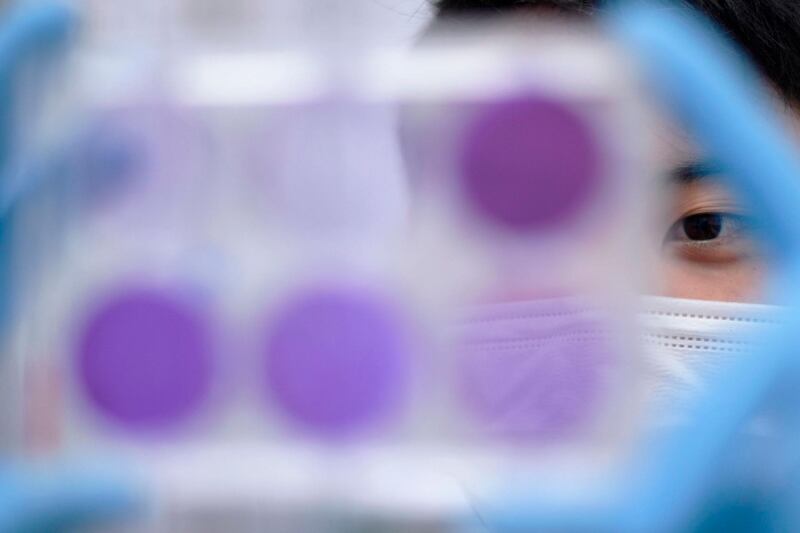The appointment of an international vaccine overseer could bring together dozens of scientific teams now competing in the race for a Covid-19 treatment to share their findings and resources, a leading epidemiologist said.
Dr Seth Berkley, the head of Gavi, the Vaccine Alliance, has proposed that the World Health Organisation takes on a co-ordinator role by selecting vaccines most likely to succeed.
Dr Berkley said that if the world’s top scientists were united in a properly resourced and centralised way, the necessary clinical trials that normally take more than 10 years could be compressed into 18 months.
“From my perspective, what we need is for the world to come together at this moment," he said during a Ted Connects online conversation.
"Not to talk about our national programmes, not to talk about ‘our scientists are the best’ ... but how do we as a world pool our best science, our best resources, our best ways of working, our best ways of manufacturing, our best clinical trials to move this forward as fast as possible."
Last week, the G20 leaders pledged to inject $5 trillion (Dh18.36tn) into the global economy to minimise the effects of the coronavirus.
They also committed to provide immediate resources to the WHO’s Covid-19 Solidarity Response Fund, the Coalition for Epidemic Preparedness and Innovation, and Gavi.
Dr Berkley’s organisation, which was created in 2000 to improve access to vaccines for children in the world’s poorest countries, praised the move.
But governments needed to funnel tens of billions of dollars through a vaccine leader, which Dr Berkley described as an investment “bargain” given the crippling economic cost that the coronavirus was wreaking on the world.
Speaking from Geneva, where the Gavi Global Health Campus is based, Dr Berkley maintained that it was important to “let science bubble up at the beginning” of a quest for a vaccine.
“You don’t want somebody having centralised control, somebody saying: ‘I know best, I’m going to predict it’, but then you want a co-ordinated effort,” he said.
“The group that is best-placed to do that is the World Health Organisation, maintaining a list of all the different programmes that are going on.
"Right now, the WHO has on its list 44 [possible vaccines], but some people think as many as double that.
“So what you want to do is say which are the most likely to succeed and then put them through some type of standardised set of criteria to pick a few of them to move forward aggressively for the world.
"Obviously science is going to keep moving. And it may be that the original approach isn’t right and that new ideas may come up, but you do need to have some process of moving this forward.”
To ensure a diversity of scientific approaches, examples of all the different new technologies that could succeed should be selected, as well as conventional doses, and put on the pathway towards regulatory approval, Dr Berkley said.
He stressed that the critical issue was to optimise research for speed and not bear down on costs.
Companies without the finances to do the work on their own required public-sector support to ensure adequate manufacturing capacity and distribution.
“We also need to be thinking about equitable access and that is going to mean thinking about the entire world,” Dr Berkley said.
“We have to make sure that it isn’t hoarded only in wealthy countries or in a select set of countries, and one way to do that would be to have vaccine production in multiple places.
“Today, most of the vaccines that Gavi uses are made around the world.
"Some are made in the US and Europe and some are made in Korea, in India, in China, in other countries.
"So what we could do is have a vaccine and transfer the technology to multiple different sites so that we can have enough vaccine for that original launch.
“But whatever happens, there will always be a period of time when we will have an exciting vaccine and not enough doses to go around, and that’s when we need to take the hard decisions, based on science, about who should get it.”
Dr Berkley describes himself as a great believer in the power of science to create the tools needed to stop this coronavirus and prepare us for the next one.







